This spring, the Maine Forest Service (MFS) and Cape Elizabeth Land Trust, along with logistical and fire suppression support from Cape Elizabeth firefighters, will conduct a prescribed, controlled burn on approximately two acres of field and woods at Robinson Woods Preserve. The designated area is in and around the blueberry field, just south of Robinson Pond.
The burn is proposed to be conducted sometime during April into possibly early May when the MFS and Fire Department determine that weather conditions for a controlled burn are favorable and safe. Appropriate signage will be posted throughout the area on the day of the burn and the trails will be closed to the public for that day.
The burn will serve the land trust by maintaining and restoring this unique habitat, and will provide a valuable training opportunity for Cape Elizabeth firefighters.
Fire is a natural part of many ecosystems. After many years of fire exclusion, an ecosystem may become stressed from overcrowded trees, invasive species, and the buildup of flammable materials that would be hazardous to human communities in the event of an accidental fire.
The right fire at the right time reduces the buildup of hazardous fuels, minimizes the spread of pest insects, removes invasive species, and recycles nutrients back to the soil, among other benefits. As forests develop, different species of plants and wildlife rely on the variation of habitat. Fires are a way to create early successional habitat from a more mature forest. By prescribing a burn, we can help manage this habitat for the benefit of the ecosystem.
Native Americans have used prescribed burning to manage habitats for many millennia. In the eastern US, fires were used to stimulate specific nut crops from oak and chestnut trees. As European colonizers came to the US, fire suppression became more common and reduced the number of cultural burns. Forest managers are now tapping into traditional ecological knowledge (TEK) to better inform our practices in modern management.
After the burn has occurred, we encourage you to walk the trails throughout the summer and watch how the habitat responds!
Resources:
https://www.fs.usda.gov/managing-land/prescribed-fire
https://www.maine.gov/ifw/blogs/mdifw-blog/fired-about-conservation
https://www.nps.gov/subjects/fire/indigenous-fire-practices-shape-our-land.htm
